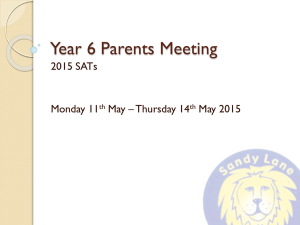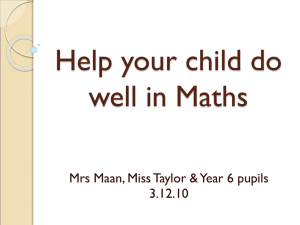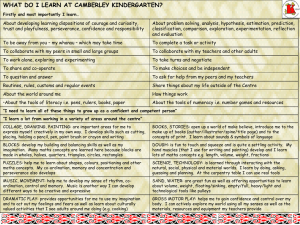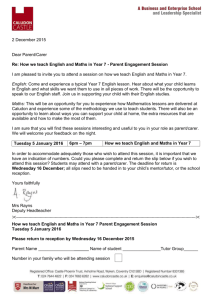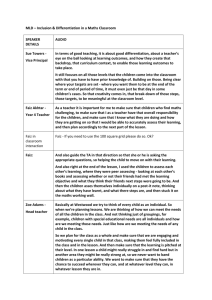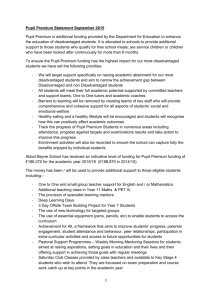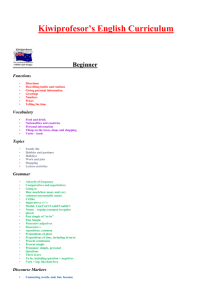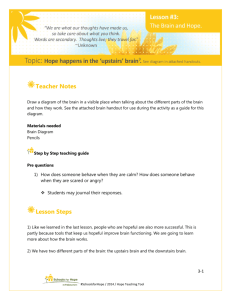Suggested Classroom Approaches
advertisement
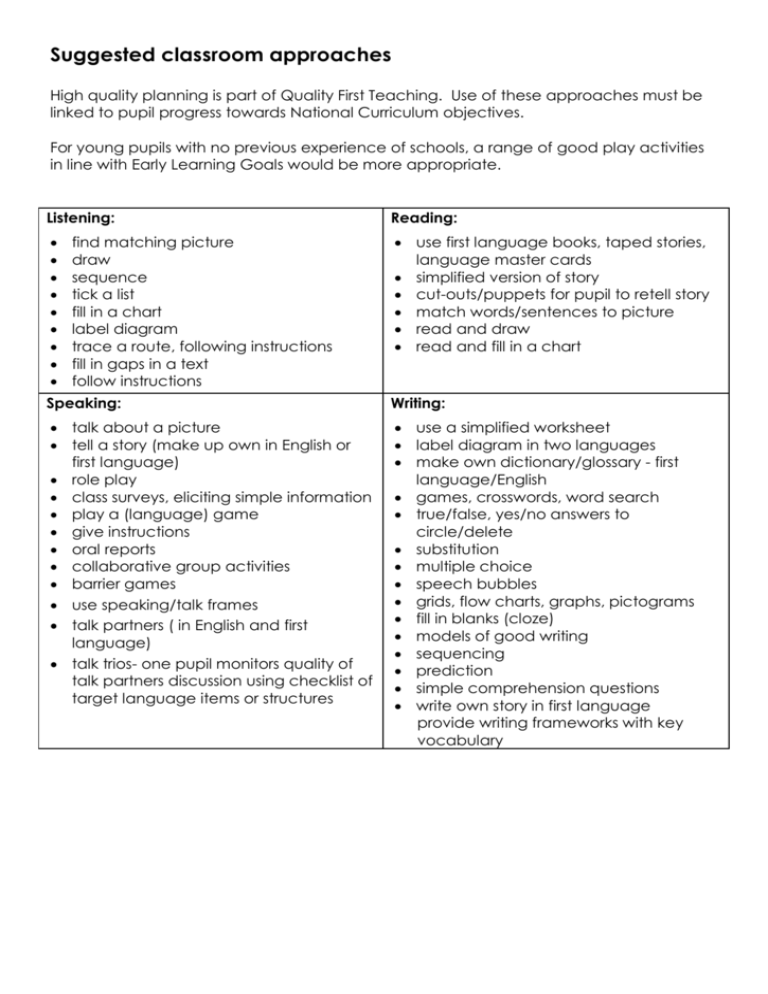
Suggested classroom approaches High quality planning is part of Quality First Teaching. Use of these approaches must be linked to pupil progress towards National Curriculum objectives. For young pupils with no previous experience of schools, a range of good play activities in line with Early Learning Goals would be more appropriate. Listening: find matching picture draw sequence tick a list fill in a chart label diagram trace a route, following instructions fill in gaps in a text follow instructions Reading: use first language books, taped stories, language master cards simplified version of story cut-outs/puppets for pupil to retell story match words/sentences to picture read and draw read and fill in a chart Speaking: Writing: talk about a picture tell a story (make up own in English or first language) role play class surveys, eliciting simple information play a (language) game give instructions oral reports collaborative group activities barrier games use speaking/talk frames talk partners ( in English and first language) talk trios- one pupil monitors quality of talk partners discussion using checklist of target language items or structures use a simplified worksheet label diagram in two languages make own dictionary/glossary - first language/English games, crosswords, word search true/false, yes/no answers to circle/delete substitution multiple choice speech bubbles grids, flow charts, graphs, pictograms fill in blanks (cloze) models of good writing sequencing prediction simple comprehension questions write own story in first language provide writing frameworks with key vocabulary Deciding which language items to teach As with all areas of language development these are best approached within a natural learning environment and a real learning context as part of work/sentence level work. The list below should not be seen as hierarchical. Basic vocabulary areas: always include ‘a’ and ‘the’ as appropriate when teaching nouns. Vocabulary areas Examples of words to be taught Social language please, thank you, sorry, hello, goodbye etc. Classroom objects pencil, pen, rubber, book, white board, chair, table, carpet, folder, door, felt-tip, paint, scissors, glue, ruler, computer etc. Areas of the school classroom, hall, playground, toilet, dining hall, office, stairs, staffroom, library, corridor, car-park, upstairs, downstairs etc. School routines assembly, playtime, dinnertime, whistle, home time etc. Clothes shoes, dress, coat, trousers, trainers, shorts, swimming costume, towel, shirt, blouse, vest, pants, T-shirt, socks, jumper etc. Parts of the body head, face, eyes, ears, hair, nose, mouth, teeth, tongue, body, arms, hands, legs, feet etc. Health tummy ache, toothache, earache, cut, bleed, hurt, broken etc. Colours black, white, red, blue, green, yellow (beware colour blindness) People girl, boy, man, woman, children, teacher, teacher’s name etc. Family mother, father, sister, brother Reading book, page, word, picture, story etc. Maths - counting 1 - 10, 10 - 20, 20 - 100 etc. Maths - money pound, penny Maths computation add, take away, multiple, divide, more, less etc. Maths - shapes square, circle, triangle, rectangle etc. Maths - measuring how long, how short, centimetre, metre, height, width Meals/food Dinner/lunch/breakfast - food usually served for school dinners - other food as necessary for recipes used in class Vocabulary areas Meals/utensils Examples of words to be taught plate, knife, fork, spoon, bowl, rubbish, bin, cup, saucer, mug etc. Instructional verbs (classroom) sit down, stand up, stand still, write, stop, draw, colour, paint, listen, line up, go and get/show me your…… etc. Instructional verbs (PE) jump, hop, climb, roll, throw, catch etc. Street (nouns) road, pavement, zebra crossing, traffic light etc. shop, house car, lorry, van etc. Street (verbs) look, cross, stop, be careful, go etc. Time - now, yesterday, tomorrow, last week, next week - dinner time, play time, home time, - 9 o’clock, half past seven etc. House outside/rooms roof, door, wall, garden, etc. sitting room, bedroom, kitchen etc. upstairs, downstairs House - furniture bed, bath, cooker, sofa, shelf etc. Day/months Monday, Tuesday, March, April etc. Weather cold, hot, rain, sunny etc. Examples of Early Stage word and sentence level language development Checklist of functions and sentence patterns Functions Sentence patterns Identifying objects What's this? It's a ..... What are these? They're ..... Is this a ......? Yes it is/No it isn't Are these ....? Yes they are? No they aren't Asking for things Can I have a ....., please? Identifying actions What are you doing? I'm ........ing What is she/he doing? S/he's .....ing Are you .....? Yes I am/No I'm not Is s/he .....ing? Yes s/he is/No s/he isn't etc. Locating objects prepositions:Where's the/my/your .....? It's here/there It's on/in/under/beside/etc Describing problems What's the matter? I've hurt/lost/broken .... My ...... hurts/is broken/is missing/etc. Expressing likes/dislikes Do you like ......? Yes I do/No I don't Expressing possession That's mine/his/her/ours/etc. I've got a ...... Have you got a .....? Yes I have/No I haven't Describing objects What colour is this .....? It's red/blue/etc How big/long/wide is this ....? It's ... cm long/wide They're the same/different What's it made of? It’s made of wood/paper/etc. Counting How many .... are there? There is/are ..... 1/2/3/etc. A lot/many/some/a few/etc. Describing ability I can ..... Can you .....? Yes I can/No I can't Reporting and narrating simple past tense:I went/saw/played etc Did you go/see/play etc. ? Yes I did/No I didn't yesterday, last week Describing lifestyles and regular events What does a chemist/bus driver/etc. do? What do you do after school? etc. Predicting the future I'm going to be an astronaut/film star/zoo keeper .... We will look at that tomorrow. I'm holding a party on Sunday etc. Referring to past and present I've hurt/broken/lost my ..... Has s/he gone/seen/written etc. Expressing obligation You must/mustn't /have to/ought to/should…. because.... He… She...



